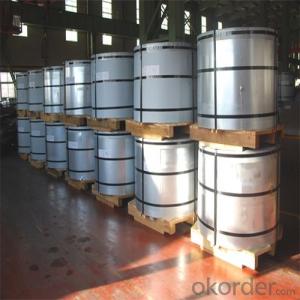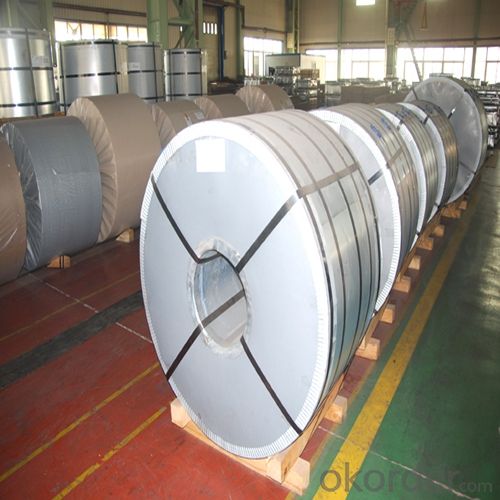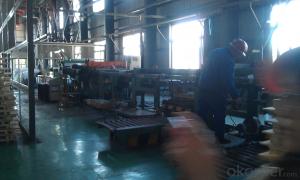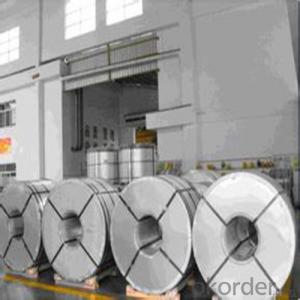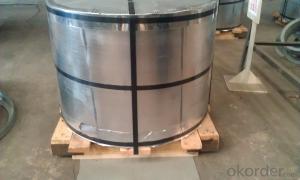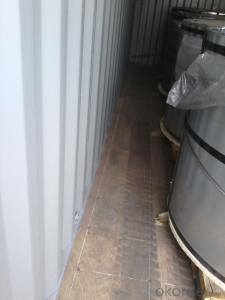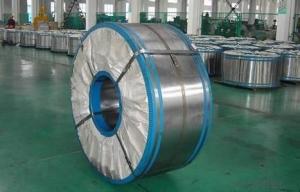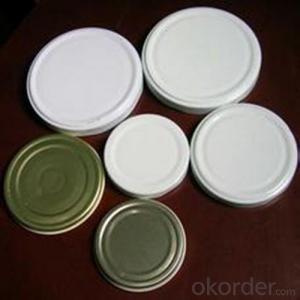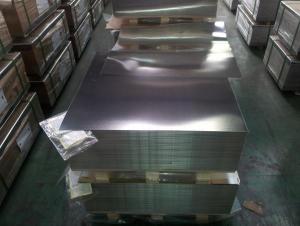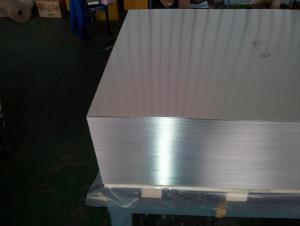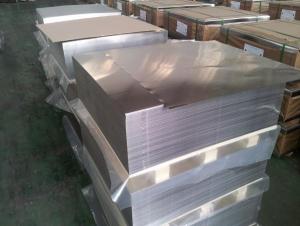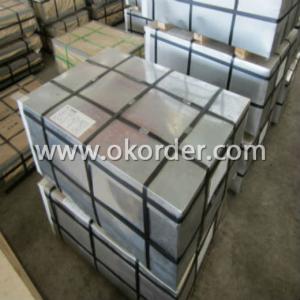Prime Quality TFS ( Tin Free Steel) for Can Cap
- Loading Port:
- Shanghai
- Payment Terms:
- TT OR LC
- Min Order Qty:
- 25 m.t.
- Supply Capability:
- 25000 m.t./month
OKorder Service Pledge
OKorder Financial Service
You Might Also Like
Specification
1.Structure of Prime Quality TFS ( Tin Free Steel) for Can Cap Description
Also known as chromed steel, tin-free steel (TFS) is obtained by coating the metal base (low-carbon steel) with an ultra-thin layer of metallic chrome and then with a chromium oxide layer.
The product complies with ASTM A-657 Specification and is manufactured with low current density (TFS-III) and is supplied only in coils of up to 12 metric tons.
2.Main Features of the Prime Quality TFS ( Tin Free Steel) for Can Cap
Chromium coated
Corrosion Resistant
Easier to recycle.
Sulphur Blackening Resistance: TFS has sulphur resistance properties, which can be used for canning protein- rich food such as fish.
Filiform Rust Resistance: Filiform is superficial corrosion of the base metal. TFS has a superior base metal which makes it corrosion resistance.
3.Prime Quality TFS ( Tin Free Steel) for Can Cap Images
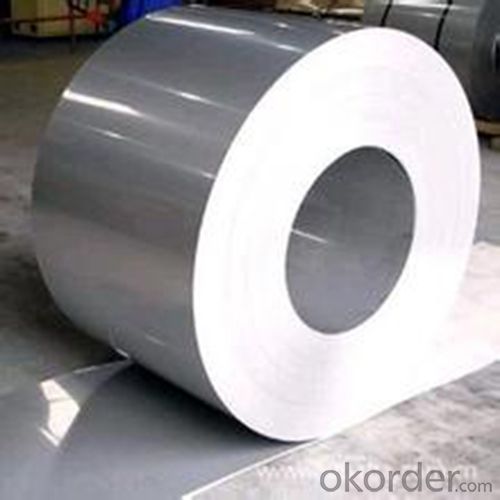
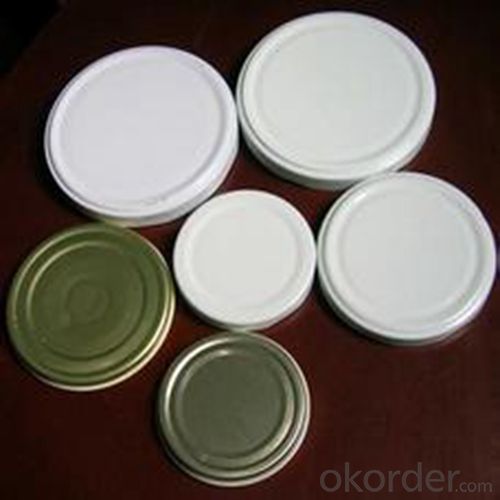
4.Prime Quality TFS ( Tin Free Steel) for Can Cap Specification
Thickness 0.14mm to 0.35mm
Width 500mm to 1200mm
Length : 500mm to 1200mm
Temper : T1 to T5, DR 7 to DR 9
Packaging Details: Seaworthy Packaging
5.FAQ of Prime Quality TFS ( Tin Free Steel) for Can Cap
-What is MOQ?
Our MOQ would be 25 tons.
- Do you only have prime quality TFS ?
We can supply both prime and second quality TFS.
- Q: Can tinplate be used for frozen food packaging?
- Yes, tinplate can be used for frozen food packaging. Tinplate is a type of steel coated with a thin layer of tin, which provides excellent durability and corrosion resistance. These properties make it suitable for packaging frozen foods as it can effectively protect the food from moisture and oxygen, ensuring its quality and extending its shelf life. Additionally, tinplate is also recyclable, making it an environmentally friendly choice for frozen food packaging.
- Q: Advantages and disadvantages of tinplate packaging
- Because of these properties, so can provide a besides the heat, completely isolated from the closed system of environmental factors, avoid color food because of light, oxygen, moisture and deterioration, nor because of aroma through and become weak or affected by environmental pollution through the smell and taste, stability is better than that of other packaging materials of food storage. Vitamin C save the highest rate, nutrient retention is the best. International environmental management standards will be implemented soon based on ISO-14000, has the advantages of low pollution, tin recycling, resource characteristics, in the future packaging applications, will have a broader space for development.
- Q: How is tinplate manufactured?
- Tinplate is manufactured by coating thin sheets of steel with a layer of tin through a process known as electrolytic deposition. The steel sheets are first cleaned and then passed through an electrolyte bath containing a solution of tin salts. An electric current is applied, causing tin ions to be attracted to the steel surface, resulting in a uniform tin coating. Finally, the tin-coated steel is rolled and annealed to improve its mechanical properties, creating the final product known as tinplate.
- Q: Can tinplate be used for cosmetic packaging?
- Yes, tinplate can be used for cosmetic packaging. Tinplate is a popular material choice for packaging cosmetics due to its durability, corrosion resistance, and ability to retain product integrity. It also offers a premium look and feel, making it suitable for high-end cosmetic brands.
- Q: What are the main trends in tinplate packaging design?
- Some of the main trends in tinplate packaging design include minimalism and simplicity, eco-friendly and sustainable packaging solutions, innovative and unique shapes and designs, vintage and retro-inspired aesthetics, and the use of vibrant and eye-catching colors to attract consumers. Additionally, there is a growing focus on functional and practical packaging designs that enhance the user experience and provide convenience.
- Q: Can tinplate packaging be used for microwaveable products?
- No, tinplate packaging should not be used for microwaveable products as it can cause sparks and potential fire hazards.
- Q: What are the potential health risks associated with tinplate?
- The potential health risks associated with tinplate are primarily related to the potential transfer of tin or other heavy metals into food or beverages stored in tinplate containers. Prolonged exposure to high levels of tin or other heavy metals may lead to various health issues, including gastrointestinal problems, kidney damage, and neurological disorders. However, the health risks are generally low when tinplate is used in accordance with safety regulations and proper storage and handling practices are followed.
- Q: What are the advantages of using tinplate for household appliances?
- There are several advantages of using tinplate for household appliances. Firstly, tinplate provides excellent corrosion resistance, which helps to protect appliances from rusting and prolongs their lifespan. Secondly, tinplate is lightweight yet strong, allowing for easy handling and transportation of appliances. Additionally, tinplate has a smooth and glossy surface, making it aesthetically pleasing and easy to clean. Lastly, tinplate is a sustainable and recyclable material, promoting environmental sustainability in the production and disposal of household appliances.
- Q: How does tinplate handle extreme weather conditions?
- Tinplate is highly resistant to extreme weather conditions due to its corrosion-resistant properties. It can withstand both high temperatures and extreme cold without warping, cracking, or deteriorating. Additionally, its protective coating prevents rusting, making it an ideal material for withstanding harsh weather, such as heavy rain, snow, or intense sunlight.
- Q: How is tinplate affected by exposure to UV light?
- Tinplate is not significantly affected by exposure to UV light since it is a highly durable material with good resistance to sunlight.
Send your message to us
Prime Quality TFS ( Tin Free Steel) for Can Cap
- Loading Port:
- Shanghai
- Payment Terms:
- TT OR LC
- Min Order Qty:
- 25 m.t.
- Supply Capability:
- 25000 m.t./month
OKorder Service Pledge
OKorder Financial Service
Similar products
Hot products
Hot Searches
Related keywords
